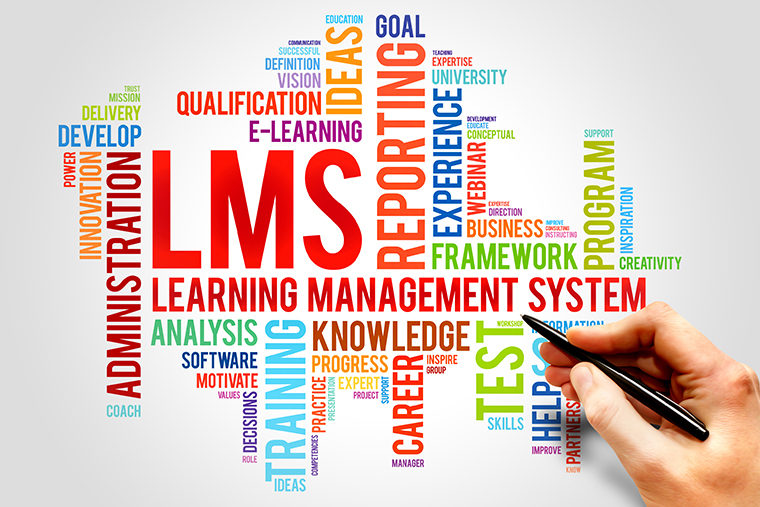Representatives of the two learning management systems (LMS) under consideration to replace the current Blackboard platform at Washington University in St. Louis will be presenting demonstrations and open discussions for Danforth and Medical campus faculty, staff and student leaders Oct. 19 and 20 and Oct 26 and 27.
After a faculty survey last spring found that 92 percent of the respondents expressed either negative or neutral reviews of the existing system, the IT Governance Teaching & Learning Domain Committee established by the Office of the Chief Information Officer studied a variety of options before selecting two finalists: Canvas and Schoology. Each will provide demos and answer questions in 14 various sessions — including four on the School of Medicine campus — beginning this week, Schoology on Oct. 19-20 and Canvas on Oct. 26-27. Registration is recommended, but not required.
“The biggest thing about both is, they were designed as LMS and not as content management systems,” said Jason Crandall, director of learning design and innovation in the School of Engineering & Applied Science and a committee member helping to spearhead the LMS evaluation. “Both Schoology and Canvas were designed in response to the shortcomings of Blackboard. They recognized that Blackboard was hard to use, so they wanted to design something that was easy to get into. Both systems are sleek and focus on making the most common instructional tasks easy to find, easy to use and effective.”
Emily Thompson, interim director of instructional technology at Olin Business School, worked with Crandall to kick off and coordinate the current evaluation of LMS alternatives after an initial failure in Blackboard’s new “Ultra” product. “We tried a new pilot program with it, too, and it failed,” Thompson said. The committee reviewed findings from several peer universities to identify possible replacements that might be more accessible for both faculty and students.
As a result of its review, the committee determined a new LMS would help to consolidate many of the numerous platforms currently used to post course materials, submit and grade assignments, communicate course updates and measure student learning. In addition to hosting classes, Washington University’s current LMS also is used for student and staff organizations, incoming student orientation and competency-based assessment.
“It would be unlikely that many students are unaffected by such a change,” Crandall said.
From last spring’s study, the committee derived assessment factors and evaluation tools so that both students and faculty in fall 2017 pilot programs, as well as from the LMS demos, will be able to contribute feedback on Canvas and Schoology.
“Even if faculty didn’t get a chance to participate in the fall pilot, these upcoming demonstrations are a way to get their voice heard,” Thompson said. “And if they could come to one session of each, they could compare and contrast.”
Of the two LMS systems under consideration, both were used in schools and programs prior to the fall 2017 pilot. Canvas was adopted by the MD program at the School of Medicine in 2014, said Carolyn Dufault, assistant dean for education at the school and co-chair of the Teaching and Learning Domain Committee with Pat Matthews, associate dean for academics at University College in Arts & Sciences.
“Students and faculty have said they like the modern, clean interface, and that minimal technical support is required to use the system,” Dufault said. “This has facilitated widespread adoption of Canvas across all required courses and clinical teaching experiences in the four-year MD program.”
Schoology, which was founded by three Washington University alumni with startup money seven years ago, also is in use at the university as part of the fall 2017 pilot programs. Additionally, it has been incorporated in a limited set of computer science, entrepreneurship and earth and planetary science courses for the past four semesters. In all, more than 2,000 students in some 50 fall classes have been involved in the pilot programs.
“An LMS not only handles the logistical elements of a course, but fosters communication, collaboration and enhanced learning both in and out of the classroom,” said Matthews at University College, where online courses could grow in number and scope with a new system. “A good LMS will handle the many varieties of face-to-face and online courses we currently have, and a great LMS will adapt to unforeseen innovations in technology and their application to learning.”
Using faculty feedback from the upcoming demonstrations, along with faculty and student use-case testing and pilot feedback, the IT Governance Teaching and Learning Domain Committee aims to complete its recommendation report by February 2018, with an eye toward bringing a new LMS online in fall 2018.
Provost Holden Thorp emphasized the need for the appropriate tools and resources in the hands of faculty and students.
“This cuts to the core of teaching and learning at Washington University, and any new system should enhance the student experience and the academic experience as well as alleviate the faculty’s workload — streamlining and improving our ability to provide a world-class education,” Thorp said.
Demonstration sessions
- Thursday, Oct. 19: Schoology (choose one session over either day) — 10-11:30 a.m., and 12: 30-2 p.m., Erlanger Auditorium, McDonnell Sciences Building (Medical Campus); and 3-4:30 p.m. and 6-7:30 p.m., McDonnell Hall 162 (Danforth Campus)
- Friday, Oct. 20: 10-11:30 a.m., Bauer Hall 240 (Danforth Campus); and 1-2:30 p.m. and 3-4:30 p.m. Simon Hall 112 (Danforth Campus)
- Thursday, Oct. 26: Canvas (choose one session over either day) —10-11:30 a.m., Erlanger Auditorium, McDonnell Sciences Building (Medical Campus); 12:30-2 p.m., Moore Auditorium, North Medical Building (Medical Campus); and 3-4:30 p.m. and 6-7:30 p.m., McDonnell Hall 162 (Danforth Campus)
- Friday, Oct. 27: 10-11:30 a.m., Bauer Hall 240 (Danforth Campus); and 1-2:30 p.m. and 3-4:30 p.m., Simon Hall 112 (Danforth Campus)
